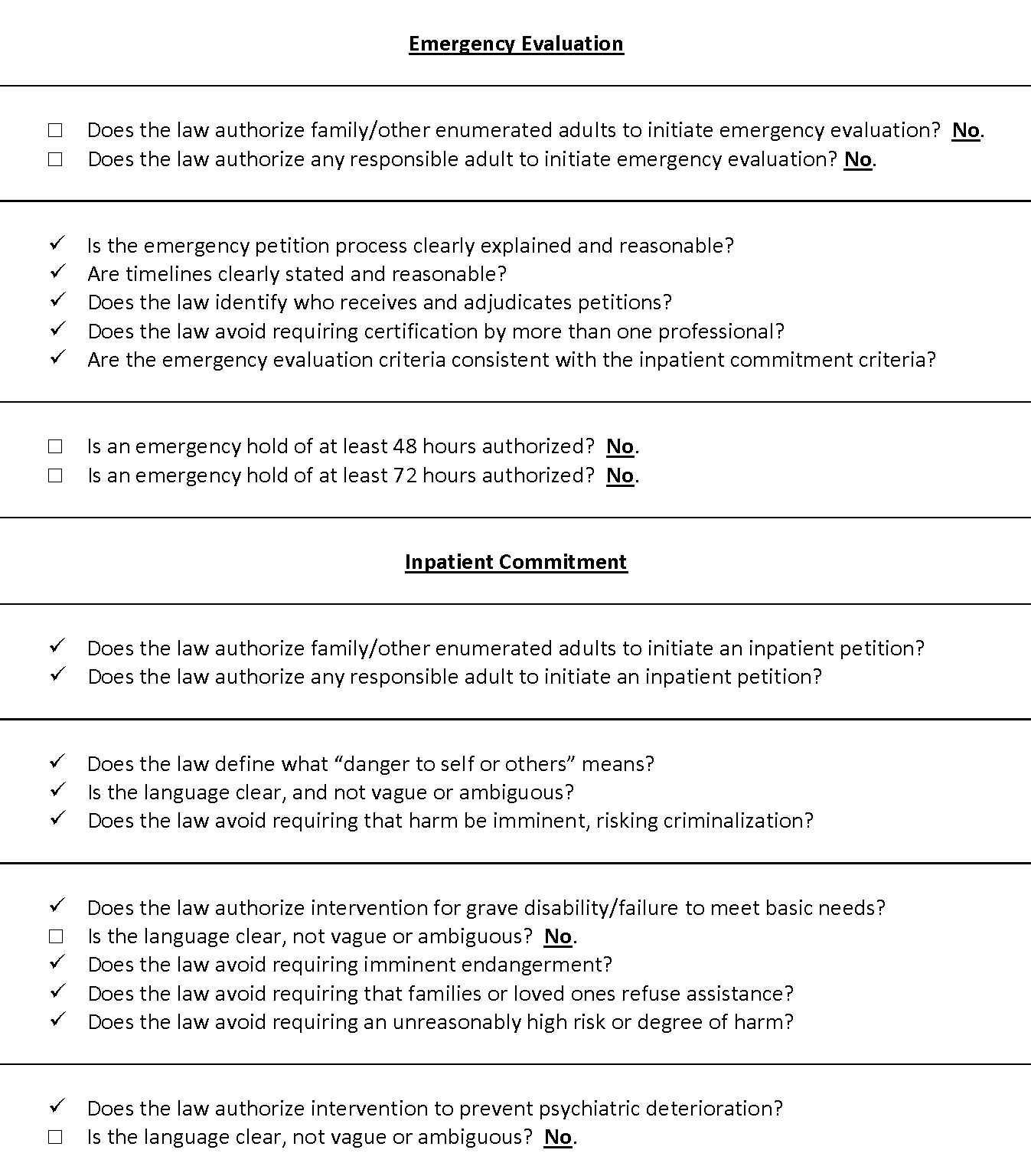Family Resources in Resources in New Hampshire
- New Hampshire Department of Health and Human Services (dhhs.nh.gov) Resources and contacts
- Mental Health Resources in New Hampshire (rtor.org) Nonprofit provides an online form for personalized assistance from a resource specialist
- NAMI New Hampshire (naminh.org) Support groups, training, information
- NH Disability Rights Center (drcnh.org) Protection and advocacy for individuals with disabilities
- Homeless & Housing | NH Department of Health and Human Services (dhhs.nh.gov) Shelter locator and links to local resources
- New Hampshire Department of Corrections Inmate Locator (business.nh.gov) Search for someone in prison by name
- New Hampshire Bar Association (nhbar.org) Legal assistance
How many people in New Hampshire have SMI?
individuals with severe mental illness.
individuals with SMI who receive treatment in a given year.
of the adult population is estimated living with a SMI in the United States.
State psychiatric hospital beds in New Hampshire
2023 total beds: 154
- Civil beds: 124
- Forensic beds: 30
2023 beds per 100,000 people: 11
Click here for more information about state psychiatric hospital beds in New Hampshire.
A minimum of 50 beds per 100,000 people is considered necessary to provide minimally adequate treatment for individuals with severe mental illness. New Hampshire fails to meet this minimum standard.
For Additional Information
Data is a powerful tool to advocate for change. Curious about a specific data point in your state? Reach out to us at ORPA@treatmentadvocacycenter.org
Fast Facts on SMI in New Hampshire
Deinstitutionalization, outdated treatment laws, discriminatory Medicaid funding practices, and the prolonged failure by states to fund their mental health systems drive those in need of care into the criminal justice and corrections systems.
20%
815
154
5 to 1
2021 New Hampshire State Mental Health Agency's expenditures
Every state receives block grant funding from the federal government to provide mental health services to their community. Below is some information about how these dollars are spent and compares to other state spending.
$314,957,662
26%
$6,416
4.2%
New Hampshire's Treatment Laws
N.H. REV. STAT. ANN. § 135-C:28(I),(II). As used in [the involuntary emergency admissions law],"petitioner" means any individual … who has requested that a physician or [advanced practice registered nurse] conduct … an examination for purposes of involuntary emergency admission. … Upon request for involuntary emergency admission by a petitioner, if the person sought to be admitted refuses to consent to a mental examination, a petitioner or a law enforcement officer may sign a complaint which shall be sworn to before a justice of the peace. N.H. REV. STAT. ANN. § 135-C:28(III). When a peace officer observes a person engaging in behavior which gives the peace officer reasonable suspicion to believe that the person may [meet the criteria for emergency evaluation] the police officer may place the person in protective custody[.] N.H. REV. STAT. ANN. § 135-C:27. A person shall be eligible for involuntary emergency admission if he is in such mental condition as a result of mental illness to pose a likelihood of danger to himself or others. N.H. REV. STAT. ANN. § 135-C:27(I). As used in this section "danger to himself" is established by demonstrating that: (a) Within 40 days of the completion of the petition, the person has inflicted serious bodily injury on himself or has attempted suicide or serious self-injury and there is a likelihood the act or attempted act will recur if admission is not ordered; (b) Within 40 days of the completion of the petition, the person has threatened to inflict serious bodily injury on himself and there is likelihood that an act or attempt of serious self-injury will occur if admission is not ordered; or (c) The person's behavior demonstrates that he so lacks the capacity to care for his own welfare that there is a likelihood of death, serious bodily injury, or serious debilitation if admission is not ordered. (d) The person meets all of the following criteria: (1) The person has been determined to be severely mentally disabled … for a period of at least one year; (2) The person has had at least one involuntary admission, within the last 2 years[;] (3) The person has no guardian of the person appointed[;] (4) The person is not subject to a conditional discharge[;] (5) The person has refused the treatment determined necessary by a mental health program approved by the department; and (6) A psychiatrist at a mental health program approved by the department has determined, based upon the person's clinical history, that there is a substantial probability that the person's refusal to accept necessary treatment will lead to death, serious bodily injury, or serious debilitation if admission is not ordered. II. As used in this section “danger to others” is established by demonstrating that within 40 days of the completion of the petition, the person has inflicted, attempted to inflict, or threatened to inflict serious bodily harm on another. N.H. REV. STAT. ANN. § 135-C:28(III). When a peace officer observes a person engaging in behavior which gives the peace officer reasonable suspicion to believe that the person may be suffering from a mental illness and probable cause to believe that unless the person is placed in protective custody the person poses an immediate danger of bodily injury to himself or others, the police officer may place the person in protective custody[.]
N.H. REV. STAT. ANN. § 135-C:35. Any responsible person may petition for a hearing relative to the need for admission on an involuntary basis of another person due to mental illness[.] N.H. REV. STAT. ANN. § 135-C:34. The standard to be used by a court, physician, or psychiatrist in determining whether a person should be admitted to a receiving facility for treatment on an involuntary basis shall be whether the person is in such mental condition as a result of mental illness as to create a potentially serious likelihood of danger to himself or to others. N.H. REV. STAT. ANN. § 135-C:2(X). "Mental illness" means a substantial impairment of emotional processes, or of the ability to exercise conscious control of one's actions, or of the ability to perceive reality or to reason, when the impairment is manifested by instances of extremely abnormal behavior or extremely faulty perceptions. It does not include impairment primarily caused by: (a) epilepsy; (b) intellectual disability; (c) continuous or noncontinuous periods of intoxication caused by substances such as alcohol or drugs; or (d) dependence upon or addiction to any substance such as alcohol or drugs. N.H. REV. STAT. ANN. § 135-C:27(II). As used in this section "danger to others" is established by demonstrating that within 40 days of the completion of the petition, the person has inflicted, attempted to inflict, or threatened to inflict serious bodily harm on another.


Recommended updates to treatment laws
- 1
Amend N.H. Rev. Stat. Ann. § 135-C:28 to authorize citizen right of petition for at least enumerated citizens, preferably any responsible adult, for emergency evaluation
- 2
Amend N.H. Rev. Stat. Ann. § 135-C:28 to extend duration of emergency hold to a minimum of 72 hours
- 3
mend N.H. Rev. Stat. Ann. § 135-C:27(1)(c) to provide sufficient detail to guide practice for grave disability standard
- 4
Amend N.H. Rev. Stat. Ann. § 135-C:34 to address ambiguity in psychiatric deterioration standard (definition in emergency evaluation statute is not explicitly applied to inpatient petitions, though it is likely intended to apply to both). Clarify N.H. Rev. Stat. Ann. § 135-C:27(1) (d)(6) to increase its utility for future deterioration and continued treatment
- 5
Amend N.H. Rev. Stat. Ann. § 135-C:45 in order to (1) provide additional procedural detail, including timelines; (2) require periodic reporting to the court; (3) codify process for renewal of order; (4) include a requirement that a written treatment plan be submitted to the court; and (5) provide procedural detail for consequences of nonadherence
- 6
Adopt express procedures for the court to monitor uncontested AOT orders entered into voluntarily to give the benefit of the black robe effect to all enrollees
